DePaul Fraternity faces backlash after choosing controversial charity
DePaul fraternity Sigma Epsilon selected a controversial charity for a fundraising event — and changed it a week later after receiving harsh criticism.
“We don’t want to detract from that with any sort of negativity from the DePaul community,” a SigEp executive board member who wished to remain anonymous said. “… When we realized that TACA was not an organization that could best achieve that goal in our DePaul community, we decided to look for something that might be able to better serve the DePaul community as well as our mission to help the world and provide for charities that can do some good.”
The controversy started on April 5, when the fraternity posted a since-deleted Instagram post announcing the return of their annual Lip Sync event after the pandemic. Within days, the post racked up dozens of comments from angry members of the DePaul community claiming the charity to be regressive and harmful. On April 14, the fraternity announced they would be swapping the charity out for a new one.
“Why are you fundraising for an organization that believes vaccines cause autism?” one user wrote.
“God I’m begging y’all to read a single thing,” another said.
“Who planned this event???? Literally do an ounce of research into legitimately helpful and non-ableist organizations I beg you,” another student wrote.
Sigma Epsilon saw the controversy and course-corrected, the member said.
“I’m not claiming to be an expert,” the SigEp executive board member said. “I’m just a college kid. Like, trying to do some research and provide a good organization that we want to support with our money and like with supporting the community. But it seems like people were saying that they would rather see a different organization supported, and since our main goal is to do good and to uplift the community, we decided that that’s what we were going to do.”
The fraternity chose the charity, The Autism Community in Action (TACA), for this year’s annual Lip Sync event, hosted on April 23, because the charity they usually support, Big Brothers Big Sisters, fell through and one of the members had worked with them in the past, the executive board member said.
TACA is a California-based national nonprofit founded in 2000 by Glen and Lisa Ackerman. Its mission is “to provide education, support and hope to families living with autism,” according to its website.
The fraternity chose TACA because this mission seemed positive, and another fraternity brother had worked with the charity in the past, making it a seemingly straightforward choice, the Sigma Epsilon member said, adding that the fraternity did some research on the charity, including going over 990 tax forms.
“We didn’t find any of them in their current initiatives or in the ways that they spent their money,” he said. “So we decided that TACA would be an organization that we felt fit well because of our personal connection and the way that they have helped the art brother and his family deal with ASD [Autism spectrum disorder] .”
The fraternity initially referred to TACA by its old name “Talk About Curing Autism,” but changed the post quickly to account for the organization’s new name: The Autism Community in Action. The name of the organization was in 2019, according to a press release, but language on the charity’s website still remains.
“We know that curing autism is not like really a… it’s a harmful thing for the autism community,” the SigEp member said. “And so that rhetoric on our end, we wanted to correct that.”
After the backlash, SigEp changed its charity to the National Multiple Sclerosis Society, keeping the original date.
David Hupp, SGA’s senator for disabled students, and an autistic disability advocate said the language of “curing autism,” that TACA uses is very problematic, and a type of therapy the organization promotes: applied behavior analysis therapy, can also be very harmful.
“Autism is not a disease,” Hupp said. “It’s not something that can be cured. And arguably, it’s not even a disorder.”
There are a lot of resources for autistic people and their families — and many of them are a “mixed bag,” Hupp said. Often, he finds himself recommending books or resources but giving stipulations and disclaimers to certain parts.
This kind of situation isn’t special, Grace Koehler, a freshman at DePaul, said. It’s just the latest example of an all-too-common problem.
“It’s not an uncommon mistake with conversations around autism,” Koehler said. “Autistic people are so rarely included in those conversations. And like, it’s not a coincidence, I think, that the people who were picking these organizations were members of the fraternity… it’s an environment that is based so heavily on a person’s ability to be social and to excel in a social environment… It’s unsurprising that there’s also a wider idea that there’s a specific way to interact.”
So how can students help autistic students?
Hupp said people can start with the way they refer to autistic people, using identity-first language to say “ausitic people” instead of “people with autism” and trying to avoid use words that can create a sense of “othering” autistic people.
“I would say, be accommodating,” Hupp added. “Think about examining ways that you might contribute to people who are diverse in those ways, feeling left out and make a better effort to include them socially, and otherwise. Make them feel more comfortable.”
Koehler suggested students support organizations by and for autistic people.
“It’d be really neat if we could get more of a conversation started and have people realize that it’s okay to be this way and it’s fine to interact with all kinds of people and makes you know less of a person, if you have different social behaviors than what’s widely accepted. “
“I’m not a charity case. If you want to treat me like one, hit me up. I can give you my Venmo,” Koehler said, laughing, “But there’s this misunderstanding that comes from a fundamental lack of considering autistic people as human and that’s something you see with a lot of marginalized groups historically, and that’s something you see with disabled people. So it’s an issue of human rights, not necessarily one of like, a disorder or a cure.”


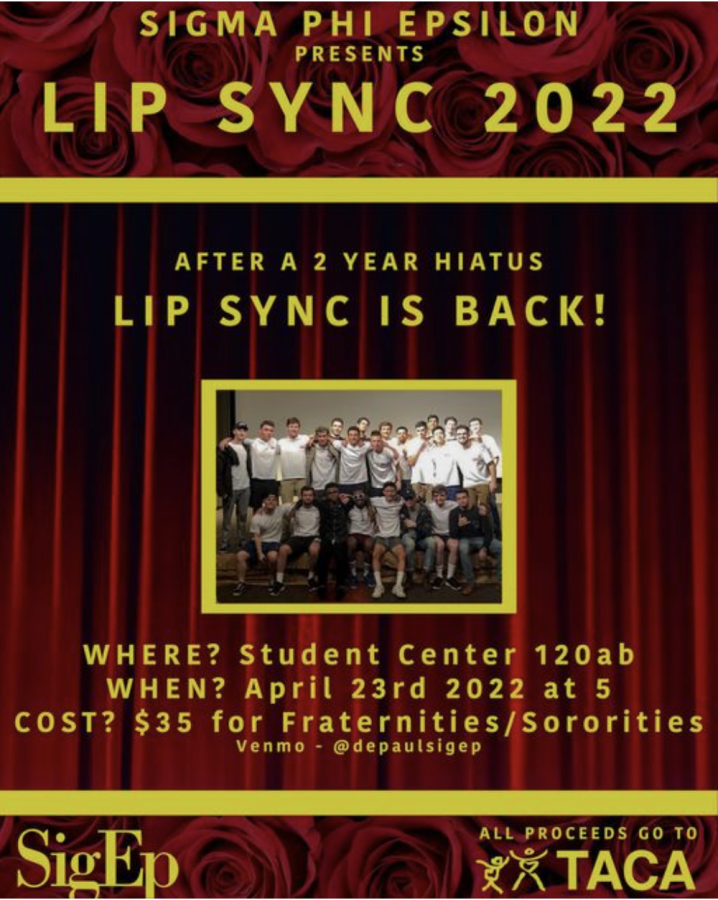
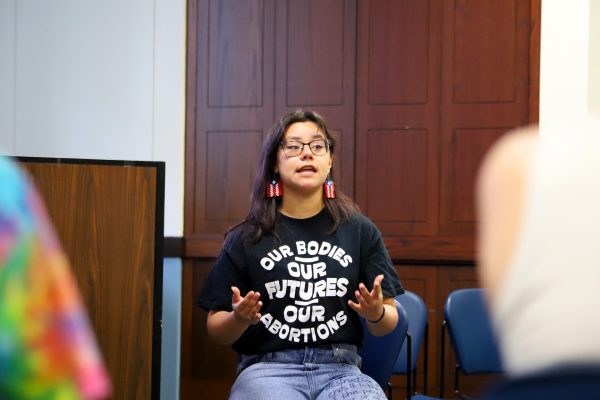
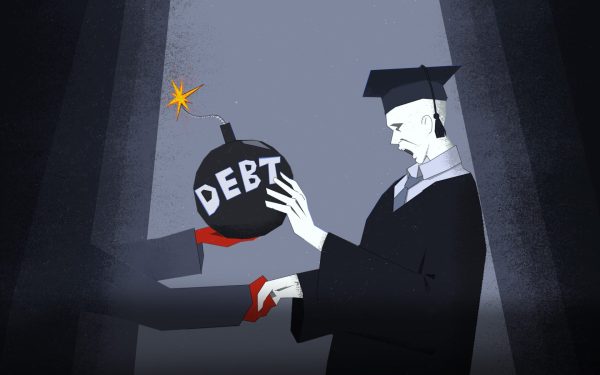

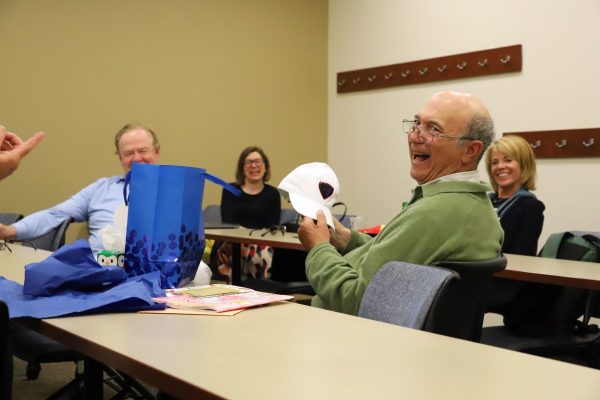
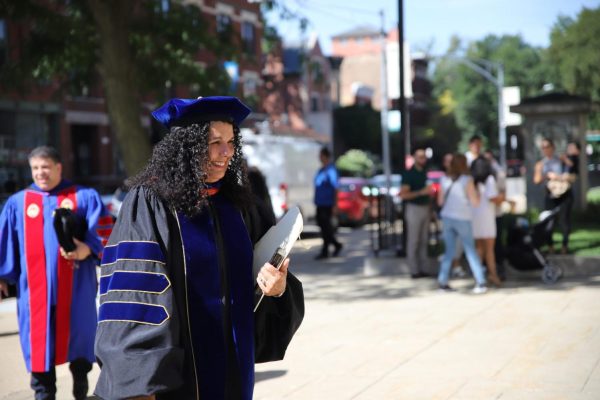

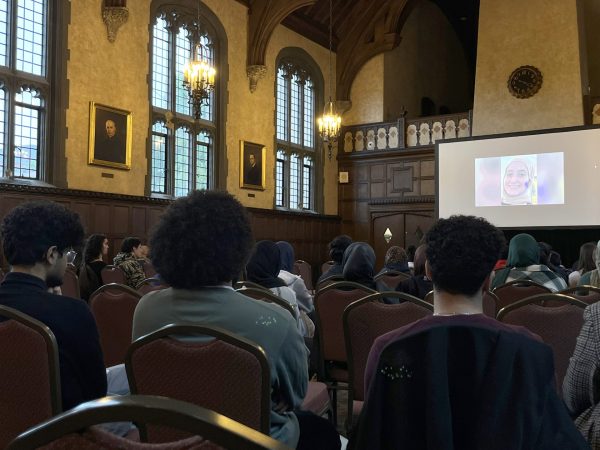
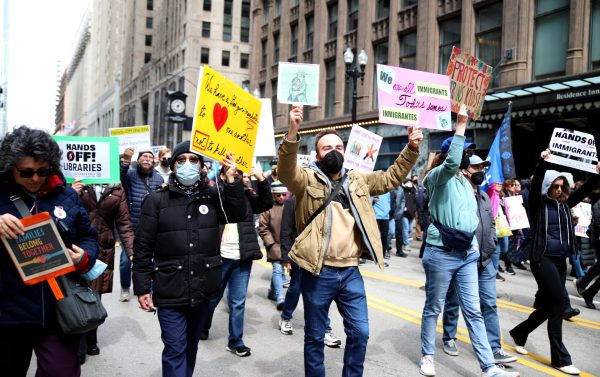

Autism can be cured. This article is false. / Apr 18, 2022 at 1:38 pm
False quote:
“But there’s this misunderstanding that comes from a fundamental lack of considering autistic people as human and that’s something you see with a lot of marginalized groups historically, and that’s something you see with disabled people. So it’s an issue of human rights, not necessarily one of like, a disorder or a cure.”
I can’t stress how idiotic these articles are whenever they propagate these talking heads like this only to make a quick buck I hate when journos lie through their teeth and never cite any sources other than the science ignoring Neurodiversity movement which is propagated through mainstream corperate media merely for a quick buck. Stop telling me to accept myself. I’m autistic and these people don’t speak for me.
Grace Koehler / Apr 25, 2022 at 4:08 pm
Hello, my name is Grace and I’m the “talking head” you so lovingly quoted in your comment. I would like to inform you that I’m not financially benefitting from this article in any way, and I doubt the author of the school newspaper is either; these thoughts are my own, but they’re shared by many fellow autistic people. I make an effort to choose my words carefully in hopes that I may best convey my ideas, and those ideas which I have developed independently do in fact align with and are often provoked by conversations being had within the neurodiversity movement, but I assure you I’ve lied awake many nights thinking about these issues from my own personal perspective. I also had a source for the study on PTSD symptoms, but it was not put into the article.
Comments like the ones you just made are not only frustrating to read, but they provide a beacon of compliance for oppressors to rally around and use as an example of a token autistic who is on their side.
If you’re truly an autistic person and you refuse to accept yourself or think that you can be “cured”, I hope you can find people that love you for who you are. It was (and still is) incredibly painful to feel as though I was not “whole” as a person and I wouldn’t wish that upon anyone.
If I may boldly suggest that this is someone from sigma phi epsilon pretending to be an autistic person (yes it’s common for people to comment spreading false info pretending to be part of the group in question), drop your Instagram so I can tag you in my story! We’re talking about you ???